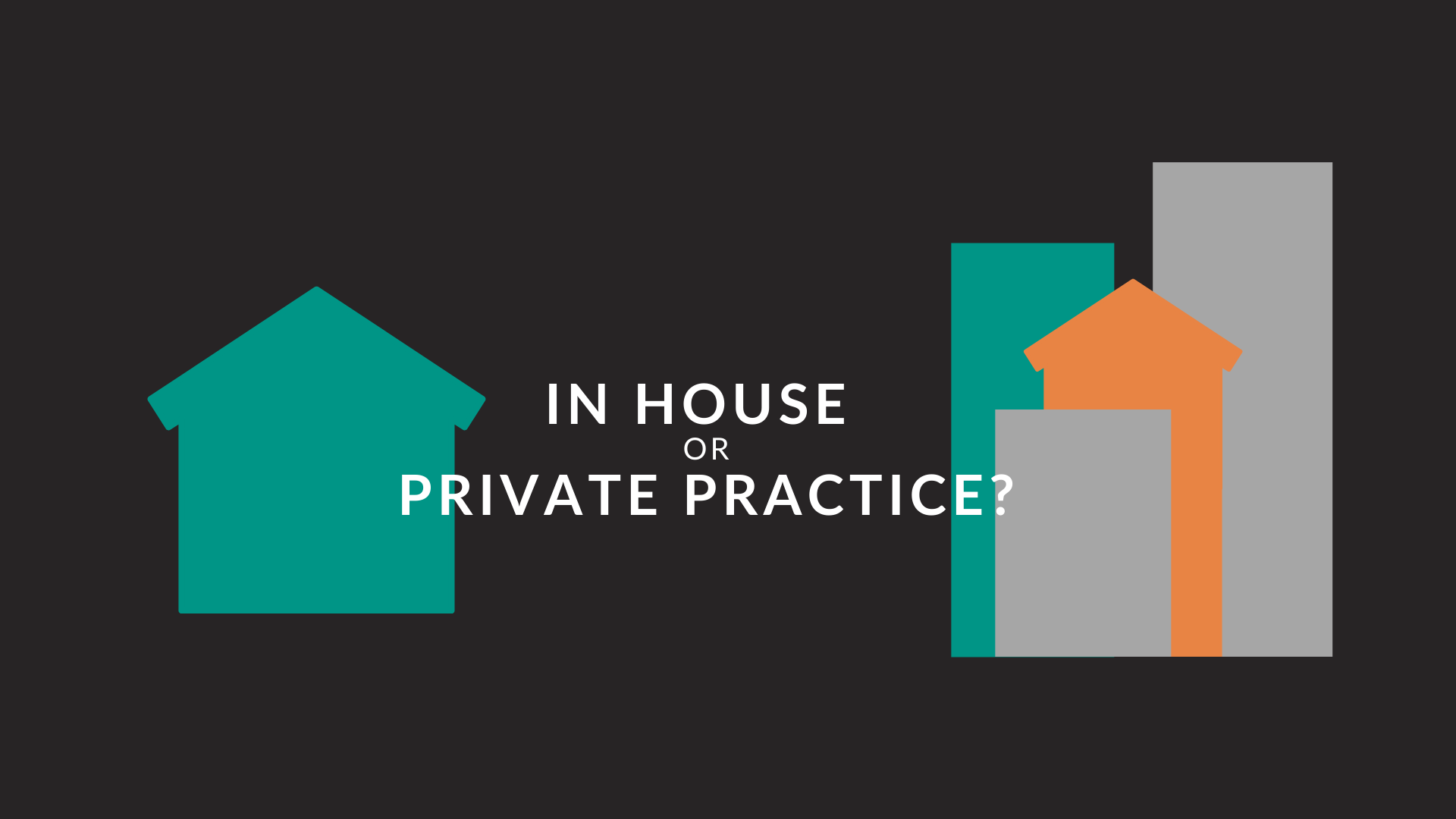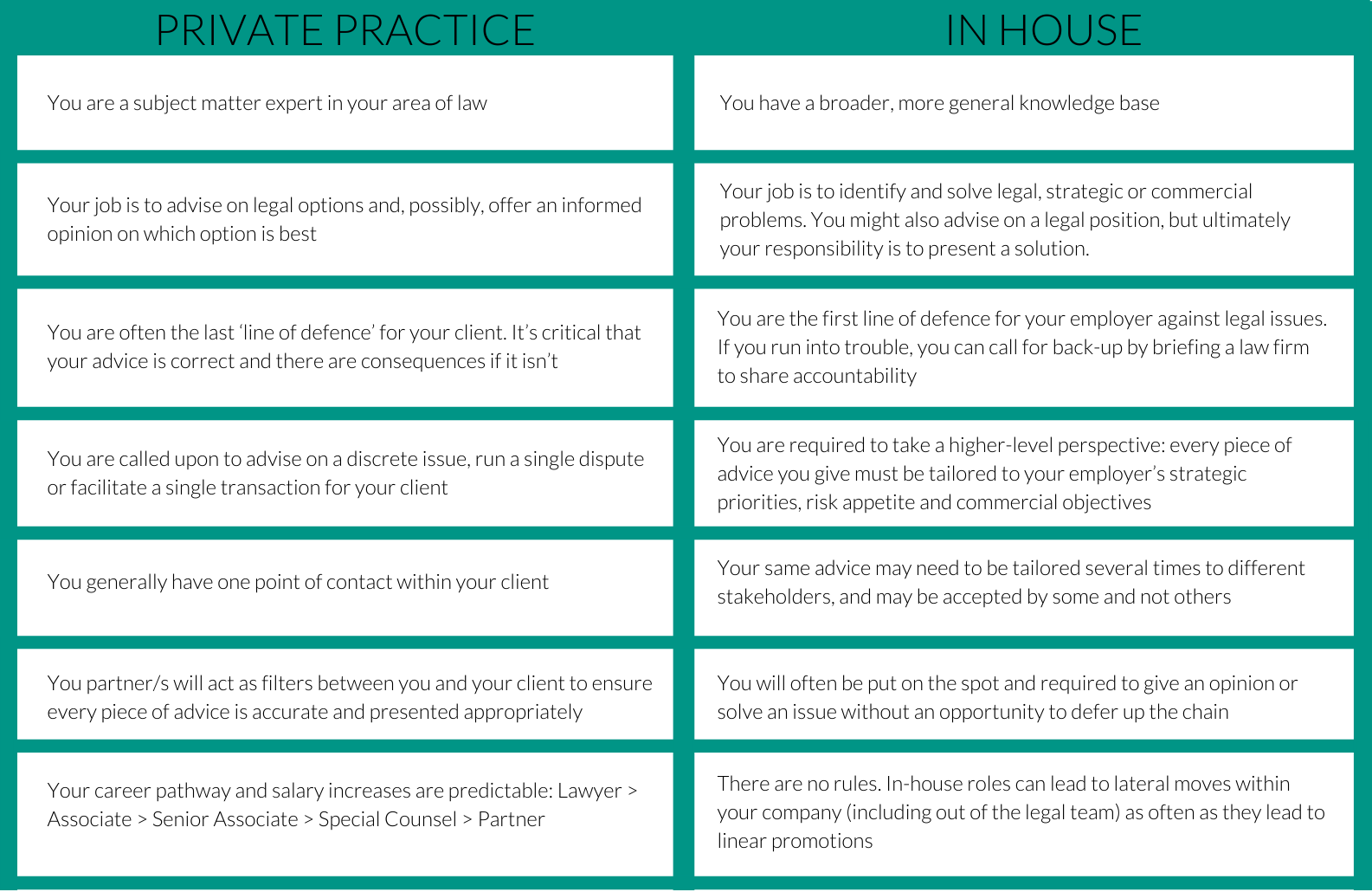
One of the most common requests I get from lawyers is to assist them with the transition from private practice into in-house.
The more risk-averse and considered thinkers come to me having had a taste of an in-house role via a secondment, or having done research and determined that their skillset is well suited to the in-house environment. Others are simply not enjoying their law firm experience and feeling more of a ‘push’ out of private practice than a ‘pull’ towards in-house specifically.
For anyone, a crucial step in the process of making any career transition is to actually understand what your new role will entail so you can weigh it up against your own skills and preferences.
So what’s the difference?
As a starting point, while in-house roles tend to be more generalist in nature, specialist in-house roles are also common. They are more likely to exist in larger companies and include, for example, a leasing lawyer at a large retail chain or an M&A lawyer at a company making regular acquisitions. In a specialist role, you might still enjoy the perks of no time sheets, casual dress and (possibly) slightly fewer working hours, but your day-to-day work would not change dramatically. The major difference would be that you would be advising a single client.
The majority of in-house roles represent a significant departure from your way of operating in private practice. Some of the major differences are as follows:

There is no right or wrong, however it’s quite clear certain qualities and personality traits lend themselves more naturally to the in-house environment, and vice versa.
My next article will contain my conclusion on which qualities are best suited to each environment.